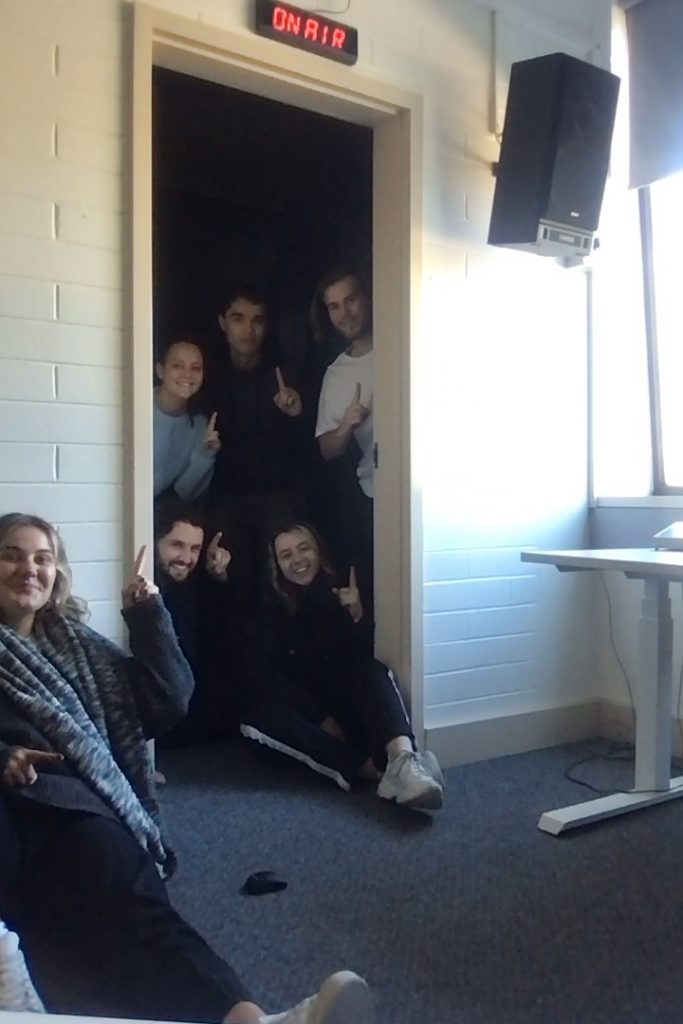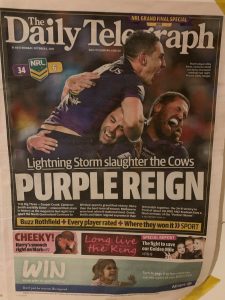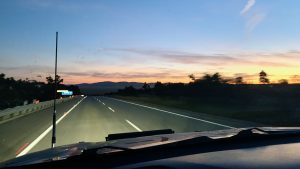Walking the talk: it’s not over for Beki Smith
Beki Smith doing the hard training yards along Lake Burley Griffin
Source: Instagram/Beki Smith
By Rochelle Riley
Beki Smith was ready to quit race walking when she got a phone call that almost ended her career last year.
Smith has faced challenges her whole life, but you’ll rarely find the 30-year-old feeling sorry for herself. But the call that shattered her Rio Olympic Games dream proved to be her biggest hurdle, leaving her questioning her involvement in the sport.
Smith was Australia’s second fastest qualifier for the 20km walk for the Rio Olympics. But a complex set of qualifying criteria meant she missed out on a ticket to Brazil.
“I pretty much threw in the towel there and then. I just needed a rest,” Smith said.
“I like to look at it now that for whatever reason I wasn’t meant to go. [But] I still look back and wonder what I could have done, because I was the fittest I’d ever been.”
It took three months of emotional healing for Smith to accept the decision.
Growing up in notoriously rough Mt Druitt in western Sydney might have helped. Mt Druitt was the feature of Struggle Street in 2015, a controversial SBS series highlighting disadvantage suffered by families in that area. But Smith looks back on where she grew up as a positive.
“It’s great coming from that type of area, because it makes you tougher and makes you stronger, and it teaches you at a young age to fight for what you want,” Smith said.
Smith started race walking as a seven-year-old at Little Athletics.
Now an Olympian, going back to her home town gives Smith more reason than ever to be proud. A group of local girls were so excited to meet her during her last trip home after her aunt arranged for them to visit and they all raced walked up and down the street.
“It’s things like that that are really special. Any success that comes out of disadvantage areas – people from that area like to cling to,” Smith said.
But celebrity appearances are a far cry from the day to day reality of her chosen sport.
Smith admits that race walking is pretty unpopular and that affects her ability to attract sponsors. She supplements her minimal Athletics Australia funding with part-time work, but says the biggest challenge is still financing her career.
Smith is quick to point out that many athletes face similar challenges and doesn’t look for sympathy.
One thing she doesn’t have in common with many of her fellow Olympians is her Indigenous heritage.
“In London I think I was the only female Indigenous athlete on the Olympics team. It’s something to be so proud about, but at the same time it’s actually disappointing that there’s not more of us,” Smith said.
Uncomfortable with the word ‘hero’, Smith says if she had to pick one it would be Indigenous runner Cathy Freeman. Freeman was the first Aboriginal person to win gold in an individual event at an Olympics, when she won the 400m at the 2000 Sydney Olympics.
“She’s changed the way Indigenous people think, especially in sport,” Smith said.
Smith’s own Olympic dream became a reality when she represented Australia in the 20km walk at the 2012 Games in London, finishing 28th in a personal best time of 1.32:14.
“It’s super intense, it’s super scary, and you put so much pressure on yourself because you want to do well,” Smith said.
“[Finishing the race] was a bit of relief more than anything… I proved to myself I can perform at my best on the biggest stage in the world.”
What happened next was completely unexpected. Her partner Daniel Smith proposed.
“I was so feral, I was so sweaty, I was like, ‘oh man, you could have taken me out for a nice dinner!’,” Smith laughs.
The couple have since had a son, Lennon, who is named after one of her favourite musicians – John Lennon. Returning to elite race walking after a baby was hard. But she overcame that hurdle, recording her best times since Lennon’s birth.
Juggling work, training and family is something Smith manages. She can’t help but feel guilty “dragging him (Lennon) out in the middle of winter” so she can attend physio and sports psychology appointments.
But Lennon was the inspiration Smith needed after the devastating news she’d missed out on a ticket to Rio.
“How can I tell my son not to give up if I give up. That’s the biggest motivator for me for Tokyo [2020 Olympics], I’d be a hypocrite,” Smith said.
But to overcome the heartbreak something had to change for Smith to ‘fall in love’ with the sport again. So her husband and father of her child took on another role – coach. Not being from a race walking background meant Dan had to learn fast, and Smith admits some of his techniques have had her raising an eyebrow.
“[But] having my husband and son out there with me – it’s fun now. It’s easier to get through hard sessions,” Smith said.
Smith has her sights set firmly on the 2018 Gold Coast Commonwealth Games. It’s especially important for her because it’s the only Australian team she hasn’t made.
“To be able to represent Australia in the Commonwealth Games and have all of your family watch you will be pretty special. Apart from my husband, no one in my family has seen me ‘live’ race for Australia,” Smith said.
Smith will be 33 at the 2020 Tokyo Olympics, which is when most race walkers peak.
“I want redemption. I want to be able to prove to the selectors initially that they made the wrong choice,” Smith said.
“Not having that chance [at Rio], I’m not satisfied with my career. I want to know I’ve done the best I can do.”




Be the first to comment!